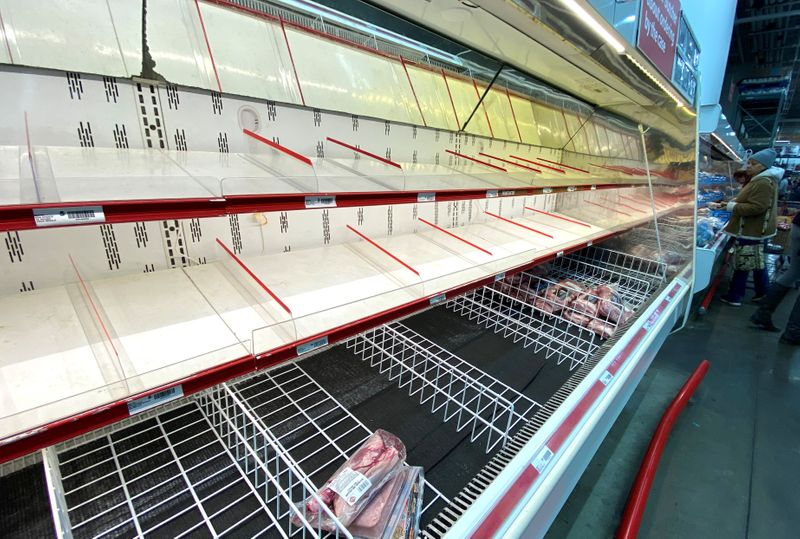By Tom Polansek
CHICAGO (Reuters) - U.S. frozen pork inventories fell in April, when they typically rise, and beef inventories dropped more than normal as the coronavirus pandemic shut slaughterhouses and prompted grocers to limit customers' buying, government data showed on Thursday.
About 20 meat plants shut last month while consumers were stocking freezers during state-imposed lockdowns. U.S. President Donald Trump ordered the plants to stay open after meatpackers warned of shortages.
Total pork inventories in cold-storage facilities declined about 2 million pounds to 614.8 million pounds as of April 30, compared to a month earlier, according to U.S. Department of Agriculture data. Normally supplies increase 27 million pounds from March to April, said Rich Nelson, chief strategist for broker Allendale.
Total beef inventories fell by about 12 million pounds to 490 million pounds, exceeding the average decline of about 6 million pounds from March to April.
"There was a moderate drawdown story for pork," Nelson said. "It was nothing like a catastrophic scare."
Inventories of pork bellies, which are cured into bacon, rose by 2.7 million pounds from March to 80.87 million pounds, according to the USDA. Typically they increase by about 7 million pounds over that period, according to Allendale.
Prices for pork bellies tumbled as restaurants closed dining rooms, but other cuts have become more expensive due to stronger retail demand.
Much of the meat in cold storage is destined for export markets, rather than U.S. grocery stores, analysts said.
China has been a major buyer of U.S. pork this year but canceled purchases of 12,561 tonnes last week, according to separate USDA data. Shipments of U.S. pork to China remained strong at 19,808 tonnes.
"Pork the last couple weeks has gotten extremely high," said Don Roose, president of broker U.S. Commodities in Iowa. "It looks like they're just backing away from the price here."
